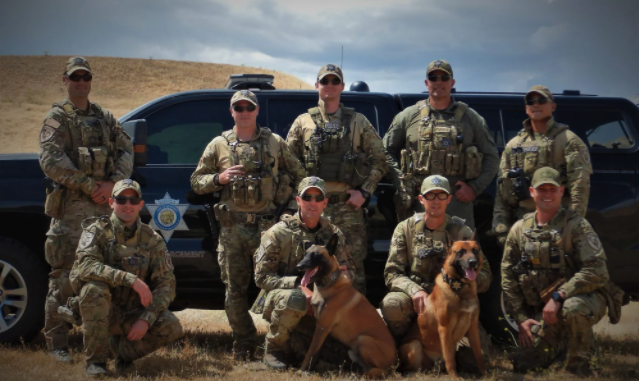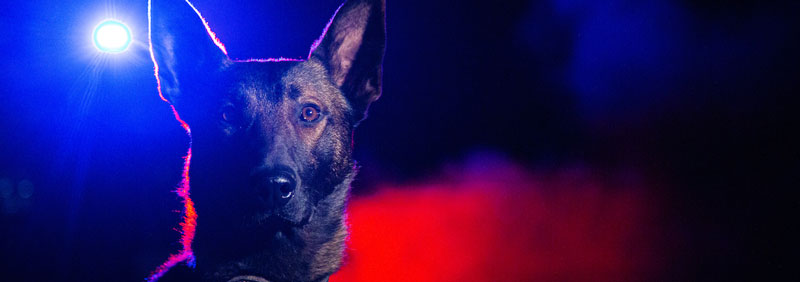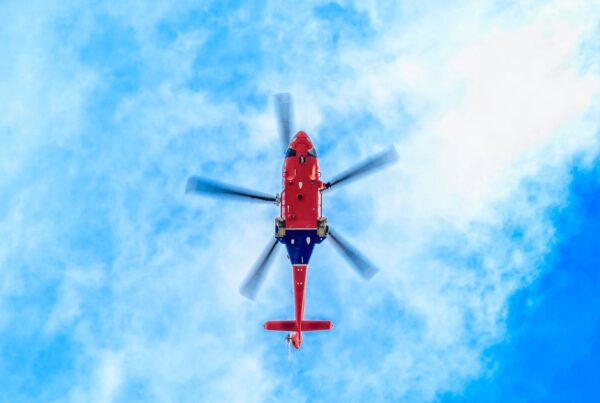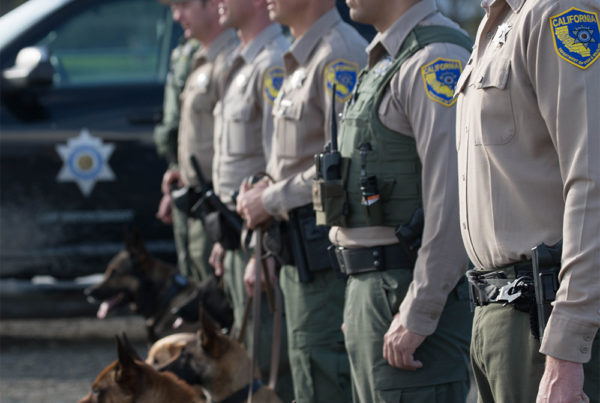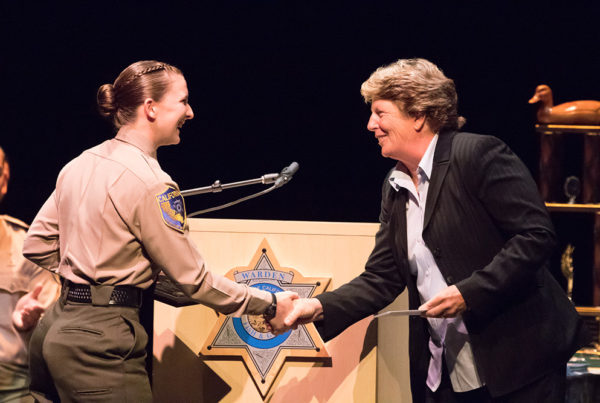Todd Van Epps, California Department of Fish and Wildlife
CalWOF is working to support the fish and wildlife officers that serve the beautiful state of California. Todd Van Epps with the OSPR Division of the California Department of Fish and Wildlife discusses his experiences serving the community and protecting our resources in California.
______________________________________________________________________________________________________________________________
CalWOF: Who are you and what is your role with the California Department of Fish and Wildlife?
Todd Van Epps: My name is Todd Van Epps. I am a wildlife officer with the California Department of Fish and Wildlife. I specifically work for a division called OSPR or Oil Spill Prevention and Response Division. I’ve been with the department since 2011. Most of my time with the department was with our marine enforcement district. In the last several years, I’ve been with our oil spill division.
CalWOF: What inspired you to follow this career path?
Todd Van Epps: Like many of us that work in the fields here and got into the game warden industry, I enjoy the outdoors and I enjoy the resources. I have a degree in environmental science. So I was aware of a little bit of this stuff and how resource management worked in different industries that revolved around that. But really, I met a warden, actually a couple of them, but one in particular and was able to go on some ride-alongs and better understand the position. I met that person through a friend of mine and that really opened my eyes to the opportunity that was in front of me. I decided to put my current career on hold and pursue this and go to our academy and go through all the hoops and hurdles there to get to where I’m at today. And I was fortunate enough to get through that.
CalWOF: Can you point to the most memorable day that you’ve had on the job?
Todd Van Epps: That’s actually a really tough question for me to answer. There’s been a lot of those days, so it’s tough to really jump down and say, “Hey, you know what? This is the day.” You know, I start to tell stories sometimes here and there to friends and family, and then I forget, you know, and I’ve done this for 10ish years, and then I forget about certain things that I’ve done. Then that really put me back to the variety that I’ve been exposed to with the position here. I know that doesn’t answer your question perfectly, but that’s been the greatest part of the job is that there’s so much to do and to learn and see. Essentially, the state of California and the resources are kind of my playground. We have a lot of opportunity to do unique things and work with a lot of unique people, entities, and organizations. So that’s really been fun for me, and the best part of the job. We’ve had the ability to do some diving, I work with some of our different specialized units over the years and we do larger investigations. We get to work with the Coast Guard, the Navy. We utilize some of their assets, so it’s not uncommon that we’re in their planes or helicopters. A wide variety of opportunities. Again, most of my career is focused a little bit more on the marine side of things. That’s basically just because of where I live. But that doesn’t mean that we don’t get the opportunity to go into the inland environment and deal with the management there, a lot of hunting regulations and things, and then more recently, dealing with our oil spill department and response group and not only managing when we have spills, even small ones up to large ones but also mitigating the impacts to the resources. So it’s kind of a twofold approach, and that’s been a unique challenge and change for me in the last couple of years. This brought on a lot of different opportunities as well to travel throughout the state and see how oil production specifically works here in the state of California and how it’s connected nationally and the impacts it can have on our resources. So I know that’s kind of a long winded way of going around your question here but ultimately, you know, I’ve seen and done quite a lot. When I look at my career, although it hasn’t been a short timeline, I still have a lot of career left in front of me. So it’s exciting to think about those opportunities that are still yet to be discovered. The other great thing that I really enjoy about the day-to-day is having the opportunity to connect with our public and work with them hand in hand to manage this.
CalWOF: What would you say is the most challenging aspect of your position?
Todd Van Epps: That changes with the day. I would say you’re constantly learning and adapting throughout this career. We’re in an environment where there are a lot of regulations to manage these resources and those change on a fairly frequent basis. So you have to make sure you understand what’s going on and why they’re changing at times. Another great part of our position is that although I work in our law enforcement division, we have other divisions such as a biological division within the department and they do a lot of scientific research to better understand the numbers behind the management of our resources and we get to work with them quite often. That’s really helpful to understand why we’re having these challenges and what can be done about it. I use this example a lot when I talk to the public. Again, I deal with marine resources often — Lobsters are a heavily-managed species in the Southern California area. They’re heavily managed species. We pay a lot of attention to them and we take the regulations very seriously. And they’re also a species that is something that’s highly attractive to our public constituents, so people that want to go and take lobsters home and eat them. We have a size limit and measure the size of the carapace, which is essentially the exoskeleton of the animal, and it has to be three and a quarter inches long with a gauge. What happens, though, at times, is that people take lobsters that are under that legal size, and they may be really close to being lawful, but they’re just not there and they may end up receiving a citation. When that happens, people are disappointed, right? Especially when you have people where their intent is probably good, but their execution is poor. They just want to go and enjoy and take something home. If you have to issue a citation, they look at it and they say “it’s just that short, you know?” But if you understand the biology a little bit better of the animal working with our department and other facets of it, you can explain to them that the lobster is a pretty slow-growing animal and it can take seven or more years for that animal to reach sexual maturity and then essentially reproduce and propagate the species. The way that lobsters reproduce is massive. Of course, a lot of marine resources do that. It’s not like humans where you have one offspring and you nurture it, they have thousands of offspring. The probability that one of those offspring reaches sexual maturity and then is able to reproduce again is actually really low. If you think about it from that angle and you think about the fact that that animal was right there, it was just about to meet that need for us for a resource to continue on… but then it was harvested beforehand before it had that opportunity. Now I can’t always say that that’s the case, but that’s the logic behind why we have this size limit. When you’re able to explain that to the public and they can better understand. They may not always agree, but they can much better understand where you’re coming from and why you’re there. I think that’s a challenge to navigate for us on a daily level because in the law enforcement division, people see us as the bad people, “we’re out there to give you the ticket.” But the reality is the reason we’re there is because we actually want the resources to continue to move in a way where it can be utilized by the public. Without enforcement, there’s been lots of studies to show that there’s a clear path of decline of resources. So I’d say that their number one challenge from the law enforcement perspective is getting the public to better understand that our role is really positive in nature overall. But it’s just like receiving a speeding ticket. Nobody wants it. And we all understand it’s not ideal, but at the end of the day, there’s a bigger picture going on and there’s a reason for it. That’s my job to try and help explain and better educate the public as we’re out there. That’s one of the major challenges that I face.
CalWOF: What would you say is one interesting thing about your role as a wildlife officer that you wish that more Californians knew?
Todd Van Epps: I want people to know that we’re a resource. It takes time to learn the environment in which we work, but we can be used as a resource for the public. There’s a lot of situations where people come to us after the fact and ask the question or wonder this or wonder that. I know when you look at it statewide there are not as many of us as maybe we would all want, but they all, in my experience statewide, are great people and they’re here to help and they are willing. If you have questions about management of the species or regulatory aspects or whatever it is, please don’t be afraid to reach out to the department. I know at times it’s a bit of a challenge, especially COVID lately to navigate, some of the phone trees and things to get to people. But if you ever see one of us out and about, don’t be afraid to come up and ask a question and better understand the resources in which conceivably you’re in at the moment or live in and work in.
CalWOF: What would you say is the most rewarding aspect of your profession?
Todd Van Epps: Getting to see the public is able to utilize the resources. That’s always great. Without a department like ours and the resource agency, there’s a potential that could not be there for the public. Also getting to help the resources, of course. You see it from both sides where we stand, we have one foot on both ends and that’s really our job is to straddle that line and we have to be able to navigate what’s best for both. We deal with wildlife, human conflict issues. Those are always the major challenges. Fortunately, it’s not something that’s necessarily my forte, and I don’t have to deal with it that often, but some of the officers do and I don’t envy them because that’s always a major challenge to try and work through. Getting to see the outcome and shaking everyone’s hand and having a positive resolution to a situation is always the best thing for us to see, right? As well as when the resources are taken care of in a way that we know is promoting the long-term use of them.

